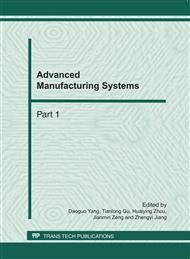p.510
p.514
p.518
p.524
p.529
p.534
p.539
p.543
p.550
Study on Optimal Real-Time Feedback Scheduling of Networked Collaborative Design Project under Uncertainty
Abstract:
Aimed at resource-restrained project scheduling problem under uncertainty which is a hot research spot, a kind of real-time feedback scheduling method is presented in this paper. Before a project is executed, the scheduling plan of all subtasks is made according to ascertain condition. The running procedure of the project is monitored by a workflow management system. When a situation, in which the finish time of the project will be delayed by changed running condition, is detected, the related information is fed back to a scheduling controller; And the controller calculates the controlling data according to optimal objective and then sends it to object scheduled; And then the old plan is rescheduled The concept model for real-time feedback scheduling of cooperative design project with resource-restrained is setup. When only the finish time of subtask is influenced and it is described as interval number, its corresponding mathematic model is setup and converted to an ascertain one by possibility-level, and solve it by GA(Genetic Algorithm). The structure of this GA is given, and a method of chromosome coding, that is the chromosome is segmented according to resources and gene is sorted in task-series, is presented in this paper. A computational example is studied in this paper, the results reveal that the method presented is valid.
Info:
Periodical:
Pages:
529-533
Citation:
Online since:
February 2011
Authors:
Keywords:
Price:
Сopyright:
© 2011 Trans Tech Publications Ltd. All Rights Reserved
Share:
Citation:


